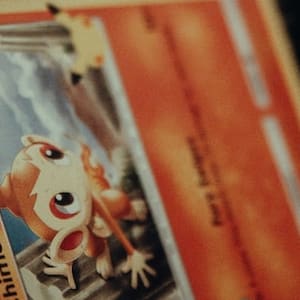give the game away: Idiom Meaning and Origin
What does ‘give the game away’ mean?
The idiom "give the game away" means to reveal or expose a secret or hidden truth, usually unintentionally, thereby spoiling a surprise, plan, or strategy.

Idiom Explorer
The idiom *let slip* means to accidentally reveal something that was supposed to be kept secret or to accidentally lose control of a situation. It can also mean to miss an opportunity or to fail to take advantage of something. The idiom is often used when someone unintentionally says or does something that they shouldn't have, leading to unforeseen consequences.
The idiom "let on" means to reveal or disclose something, often a secret or information that was previously unknown. It implies that the information was not openly known or shared, and someone has now chosen to make it known to others.
The idiom "in the game" means actively participating or being involved in a particular activity or situation.
The idiom "guess what" is used to introduce or emphasize surprising or unexpected information or news.
The idiom "give the lie to" means to disprove or contradict something, revealing it to be untrue. It is often used when evidence or facts are presented that directly oppose a statement or belief.
The idiom "give the lie" means to prove that something is false or to disprove a statement or claim.
The idiom "give someone to understand" means to make someone believe or think that something is true, usually by implying or suggesting it indirectly.
The idiom "give someone the slip" means to escape or elude someone's pursuit or surveillance.
The idiom "give someone the bag" means to deceive or cheat someone.
The idiom "give out" means to become exhausted, to no longer function properly, or to distribute something. It can also imply revealing or disclosing something to others.
Deciphering the Phrase
First used in the mid-1800s, the idiom "give the game away" has an interesting and specific meaning. It refers to an action or statement that unintentionally reveals a secret or truth, thus ruining a plan or strategy. The idiom originates from the world of sports and games, where giving away the game would result in defeat or failure.
Over time, the idiom expanded beyond sports and became a metaphorical expression used to describe situations in everyday life. It can refer to instances where a person unintentionally reveals confidential information, making it difficult for them or others to achieve their goals. The idiom can also be used to describe situations where a person's actions or behavior inadvertently expose their true intentions, leading to disappointment or failure.
One example of the idiom in use could be a spy who accidentally reveals their true identity, jeopardizing a covert mission. Another example could be a person who divulges a surprise party before it happens, ruining the element of surprise for the guest of honor. In both cases, the idiom highlights the consequences of unintentionally revealing information and the detrimental impact it can have on a plan or strategy.
The idiom "give the game away" is a popular phrase in English, commonly used in both spoken and written language. Its widespread usage reflects its ability to succinctly express the notion of revealing secrets or undermining plans.
While the idiom "give the game away" has a well-established meaning and usage, it can be interpreted and applied in various contexts. Its versatility allows for its continued relevance and adoption in modern English. As language evolves, new shades of meaning may emerge, further expanding the possibilities and nuances of this idiom. The idiom's continued use in contemporary culture demonstrates its enduring appeal and its ability to capture the complexities of human communication and interaction.
The related idiom "give away the store" can also be used to describe situations where someone is excessively generous or offers too much. It can refer to situations where a person gives away their possessions or resources without considering the consequences. This idiom emphasizes the loss or disadvantage that can occur when someone is overly generous or careless in their actions.
The idiom "dead giveaway" is another related expression that describes a clue or indication that reveals a hidden truth or intention. It can refer to something that immediately exposes or gives away a secret. The use of the word "dead" in this idiom adds emphasis to the certainty and irrefutability of the clue or indication.
The phrase "give out" also relates to the idiom "give the game away." It can be used to describe situations where someone distributes or hands out information or resources, often unintentionally. In this context, "giving out" can result in unintentionally revealing a secret or undermining a plan, similar to "giving the game away."
The idiom "expose oneself" is another related expression that shares similarities with "give the game away." It can be used to describe situations where someone unintentionally reveals their true intentions or vulnerabilities, often resulting in negative consequences. This idiom emphasizes the unintentional nature of the revelation and the potential harm it can cause.
Example usage
Examples of how the idiom "give the game away" can be used in a sentence:
1. She gave the game away by laughing when I told a joke about the surprise party.
2. The spy mistakenly revealed his true identity, giving the game away to the enemy agents.
3. The goalkeeper's hesitation in the penalty shootout gave the game away to the opposing team.
More "betray" idioms
We missed the mark - nothing found.



